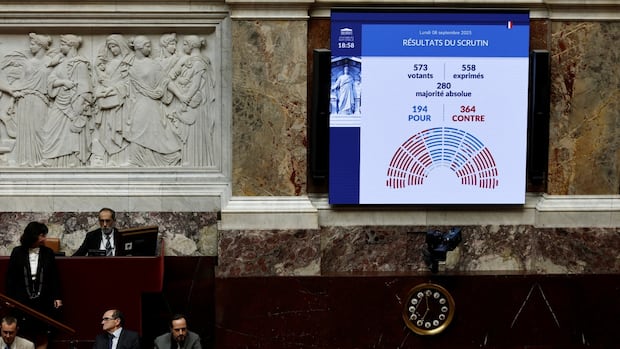France’s government faced a confidence vote on Monday, leading to the ousting of Prime Minister François Bayrou. Bayrou’s proposal to cut public spending was rejected in a 364-194 vote, marking a significant political setback for him. This government shakeup, the fourth in a year, has left President Emmanuel Macron searching for a new prime minister amid ongoing challenges such as budget issues and international conflicts.
While Macron retains authority over foreign and European matters, his domestic influence is waning. The recent collapse was triggered by Macron’s decision to dissolve the National Assembly in June 2024, hoping to strengthen his centrist alliance. However, this move backfired, resulting in a fragmented legislature without a dominant political bloc in power.
Bayrou’s confidence vote was a risky move that did not pan out as expected. He advocated for substantial spending cuts to address France’s mounting debt crisis, emphasizing the need for urgent action. France currently holds the highest deficit in the eurozone, with public debt exceeding 114% of GDP.
Following Bayrou’s removal, Macron must now appoint a new prime minister to navigate the political turmoil in parliament. The opposition is pushing for a snap election or changes in government leadership, adding to the uncertainty. Despite calls for his resignation, Macron aims to stay in office until the end of his term in 2027, but the ongoing political gridlock poses challenges to his leadership.



